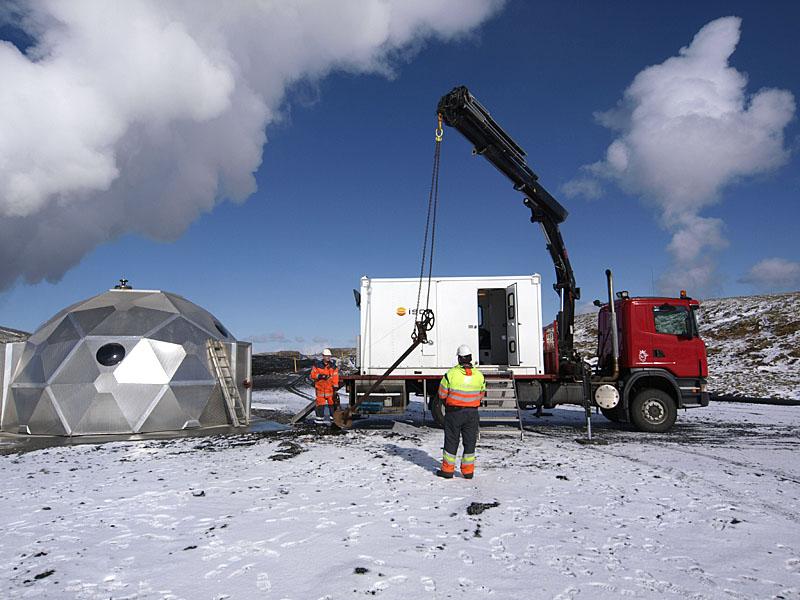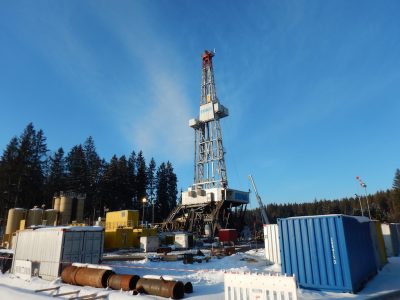Iceland GeoSurvey secures around EUR 4m in EU grants for several research projects
Iceland GeoSurvey (ISOR) secures EU grant funding of EUR 4m ($4.5 million) for several projects related to EGS, innovative material for wells, production enhancement, as well as combined heat, power and metal extractions.
Last year Iceland GeoSurvey (ÍSOR) applied for five research grants to The EU Framework Programme for Research and Innovation; HORIZON 2020. Four of those applications were recently accepted, whilst the fifth application was not accepted at this time, but was awarded the passing mark. The usual success rate for EU-applications is about 15-30%, and ÍSOR‘s acceptance rate of 80% should be considered a very good result.
These four European research and development projects will be worked on for the next four years, from 2016-2019. Participants are from 31 institutions, universities and energy and research organisations from all over Europe. In Iceland, apart from ÍSOR, the participants are HS-Orka, Landsvirkjun and GEORG, a geothermal research group. The EU grants to ÍSOR for these four projects, will both provide work for eight specialists and graduate students for the next four years, and cover any miscellaneous costs.
ÍSOR´s success in winning these projects is quite a coup for the company as it gives our specialists and the Icelandic power companies the opportunity to work in cooperation with the world leading research companies in the field of geothermal. ÍSOR can now hire and train young specialists for interesting research and development work on a more significant scale than has been possible hitherto. ÍSOR has already advertised seven positions in connection with the new projects, and these posts will be filled soon.
The four research projects involve processing techniques, such as deep drilling, well design, well technique and well stimulation. A great emphasis is being placed on the selection of materials and the development of methods to utilize geothermal heat from deep wells. ÍSOR is, as has been pointed out, a participant in four projects, and is the leader of one. You can see more about the projects below.
DEEPEGS – Deployment of deep enhanced geothermal systems for sustainable energy business
The aim of this project is to drill deeper into the geothermal areas, as far as 4-5 km and study the possibility for utilizing energy from lower depths than previously. Three sites will be examined; the Reykjanes geothermal area in Iceland and geothermal areas in Valence and Vistrenque in France.
In Reykjanes, the plan is to clean a 2.5 km deep production well, cast it with steel at a depth of 3 km and then continue to 4-5 km. The aim of the project is to prove that energy can be produced from deep, stimulated geothermal systems. Two possibilities will be explored. Firstly, the utilization of steam from the well for the Reykjanes power station and secondly, to exploit the well for pumping cold water down to 4-5 km depth and thence employing the heat of the rock to increase the production ability of the area from the current wells which are as deep as 2-3 km. A large part of the project involves the increase in the permeability of the rock from that depth and up to the current depth of the area.
Leading the project is HS Orka, with the participation of ÍSOR, Landsvirkjun and the geothermal research group GEORG from Iceland, BRGM (France), Fonroche Geothermie (France), Statoil (Norway), Herrenknecht Vertical (Germany), ENEL Green Power (Italy) and Karlsruhe Institute of Technology (Germany).
GEOWELL – Innovative materials and designs for long-life high-temperature geothermal wells
The project aims to develop reliable, economical and environmentally friendly methods of design, finish and monitoring control of geothermal wells, with the intent to expedite the development of geothermal exploitation globally. GeoWell will focus on casting technology and methods of casing, choice of materials and construction with regard to heat intensity.
Methods of heat- and tension measurements in wells with fibre optic cable techniques will also be developed within the project in order to manage the state of wells over time. Methods of risk assessment in connection to well design and management will also be developed within the remit of this project.
The research is based on traditional wells as well as deeper wells where pressure is as high as 150 bar and heat exceeds 400°C. This new technology will be tested both in laboratories where real situations will be simulated and in wells that have already been drilled.
Participants in the project, apart from ÍSOR (who lead the project), are IRIS in Norway, GFZ in Germany, TNO in Holland and BRGM in France, as well as Statoil in Norway, HS Orka in Iceland and Akiet in Holland.
SURE – Novel Productivity Enhancement Concept for a Sustainable Utilization of a Geothermal Resource
The aim of the project is to utilize well technology in order to stimulate wells which produced disappointing results via traditional drilling. The technology to be used in this project comes from the oil and gas industry and entails the drilling of up to 100 m long well, drilled either horizontally or directionally from an existing well, up to four directions for each depth.
The research areas are in Iceland, where one well will be stimulated, and in Holland, where two wells will be stimulated. The wells will be measured before and after stimulation and will continue to be monitored long after in order to assess whether the performance is stable.
Participants in the project alongside ÍSOR are the research institutes TNO in Holland and the project leader, GFZ in Germany, the Tehcnical University on Delft, Holland, Hochschule Bochum in Germany,, Wellservices in Holland, Imperial Collage of Science Technology and Medicine in Britain, Geoterma UAB in Lithuania and Gamtos tyrimu centras in Lithuania.
CHPM2030 – Combined heat, power and metal extraction from ultra-deep ore bodies
The aim of the project is to develop and adjust technology that makes energy generation possible alongside the processing of metals and other valuables from geothermal liquids. Using this technology, it is hoped that we can increase and improve profitability as well as improve the utilization of geothermal areas in Europe. Most emphasis will be placed on investigating how this can work out in connection with the management of deep wells.
Participants in the project alongside ÍSOR are Miskolci Egyetem (Hungary), Szegedi Tudományegyetem (Hungary), Fédération Européenne des Géologues – FEG (France), Natural Environment Research Council – NERC (Britain), Laboratorio Nacional de Energia e Geologia I.P. (Portugal), Vlaamse Instelling voor Technologisch Onderzoek – VITO (Belgium), La Palma Research Centre for Future Studies (Spain), Guenter Tiess (Austria ), Institutul Geologic al Romaniei (Rumania), Katholieke Universiteit Lueven (Belgium) og Sveriges Geologiska Undersökning (Sweden).
Source: ISOR release


















